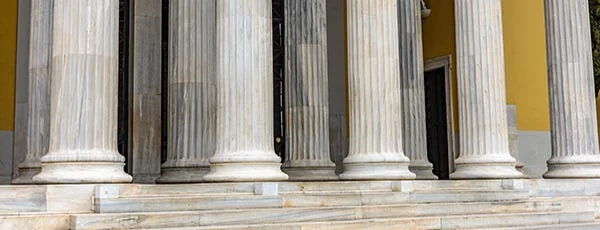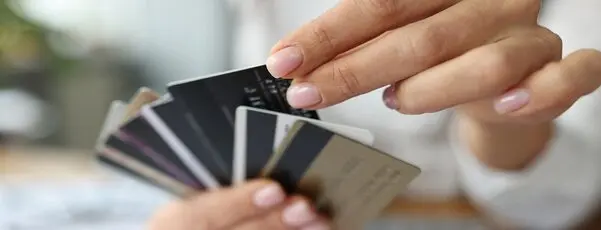COVID Credit Card Debt Relief: Who Offers It?

UpdatedJun 19, 2025
- There is no formal government-backed COVID credit card debt forgiveness program.
- Many financial institutions and loan servicers are working with customers impacted by COVID.
- Credit card issuers are not obligated to forgive or settle debt but may be open to settlement.
Table of Contents
- What Is COVID Credit Card Debt Relief?
- Examples of COVID Credit Card Debt Relief
- Is There Government Credit Card Debt Forgiveness for COVID?
- Credit Card Debt Relief vs. Forgiveness
- How to Get Credit Card Debt Relief
- Getting Help with Credit Card Debt Relief
- The Cost of Not Dealing with the Problem
- Get the COVID Credit Card Debt Relief You Need
Having trouble keeping up with your credit card debt due to COVID?
You might find help from an unexpected source: your credit card company.
Credit card issuers recognize that COVID has caused financial problems for millions of Americans. Many credit card companies provide debt relief to help you get through pandemic-related disruptions and keep you as a paying customer.
This article explains various forms of COVID credit card relief and describes the steps you should take to get that kind of help.
What Is COVID Credit Card Debt Relief?
In general, credit card debt relief can take a few different forms. The key factors are your minimum monthly payment and how much you owe.
Minimum monthly payment. Each credit card statement shows a minimum amount you have to pay within that statement period (usually about 30 days). Anything that reduces this minimum requirement, even temporarily, can be a form of debt relief.
Total balance. If the total amount you owe has become unmanageable, reducing that amount would certainly make things easier. However, this is not always the best solution in the long run.
Credit card companies are usually open to helping customers work through their debt problems, and this has been especially true since the pandemic took hold.
The financial disruption caused by COVID is often temporary. Given time and a little help, many people could find a way to pay their debts and get back to using credit productively.
In light of this, credit card companies these days are remarkably open to discussing options that will help their customers make it through temporary difficulties.
Examples of COVID Credit Card Debt Relief
What are some examples of how credit card companies can help?
Some major credit card issuers like American Express, Chase, and Citibank have formal programs to help struggling customers manage their credit card debt. Many others will discuss modified repayment plans on a case-by-case basis.
Common examples of how credit card companies might make your payments more manageable include the following:
Minimum payment reduction. Your monthly payment would be easier to make if it were lower. However, this is generally just a temporary solution. Paying less each month can be more expensive in the long run because it will take you longer to pay off your debt, causing you to pay more interest. In fact, if your payment is less than the interest charges you are accruing each month, your debt would grow.
Collection forbearance. The card issuer might allow you to delay making payments for a limited time. Again, this is only a temporary solution since interest charges may mean your total debt rises during a forbearance period. Still, as a stopgap to tide someone over while they get back to work, forbearance can provide welcome relief.
Reduced interest rates. Lowering your interest rate means more of your payments will reduce your balance rather than go towards interest. This may keep your debt from growing as much while monthly payments are reduced or suspended.
Waiving late fees. Holding off on charging the usual penalties for late or missed payments can help prevent a bad situation from getting worse.
Through some combination of the above, credit card companies will often work with customers to plan to get back on track towards being able to pay their bills in full. This is especially true if you can demonstrate that your financial difficulty is a temporary situation brought on by the COVID pandemic.
Is There Government Credit Card Debt Forgiveness for COVID?
You may have heard about government programs to grant credit card debt forgiveness in response to COVID, but there is no such thing.
The government did provide various forms of financial assistance in response to the pandemic. However, these programs have mostly expired as of this writing. There are also laws like the Fair Debt Collection Practices Act designed to protect consumers from abusive debt collection practices, like getting collection calls at work and other forms of harassment.
On top of that, the Consumer Financial Protection Bureau offers detailed advice on seeking credit card debt relief during the pandemic. Ultimately, that advice centers on working with your credit card company to find a solution. Be suspicious of anyone who approaches you with a scheme to get you into a government program to help with credit card debt.
Credit Card Debt Relief vs. Forgiveness
When you look for possible solutions to credit card problems, it’s essential to distinguish between credit card debt relief and debt forgiveness.
Credit card debt relief can take many forms, including debt forgiveness. Forgiveness means simply wiping out all or part of your debt. The other forms of debt relief discussed earlier in this article focus on finding ways to make your debt easier to pay.
While wiping out your debt may sound great, finding a way to repay it is better in the long run. Debt forgiveness will cause lasting damage to your credit rating that could make it more difficult and more expensive to get credit in the years to come.
Forgiven debt is also likely to be considered taxable income, so you won’t be entirely off the hook financially either.
How to Get Credit Card Debt Relief
Here are some practical steps you can take to get credit card debt relief:
Identify the problem early. Don’t go into denial mode. If you’re having trouble paying your credit card bill, do everything you can to fix your budget so you can pay your bills. If you still can’t find a way to make your payments on time and in full, it’s time to look for solutions.
Make a plan to get back on track. If a COVID-related setback makes it challenging to repay your credit card debt, figure out what it would take to meet your obligations. Be realistic. Credit card companies are reluctant to simply make your debt go away. However, if you could pay your debt with a little more time or lower payments, that might be a realistic solution.
Contact your credit card company. This is a crucial step. If you try to hide from your credit card company, every missed payment adds penalties and puts black marks on your credit report. Instead, explain your financial difficulty and propose a plan for dealing with it. The credit card company might not go along with everything you offer. Still, if you can demonstrate that your problem is a temporary one due to COVID and that you are sincere about repaying, they are more likely to work with you to find a plan.
Agree on a course of action. If you reach an understanding with your credit card company, get it in writing. Make sure that you and your creditor are on the same page and that you can document that you aren’t simply missing payments.
Getting Help with Credit Card Debt Relief
Suppose your financial situation is so overwhelming that you can’t come up with a plan, or you haven’t been able to get concessions from your credit card company. In that case, you can turn to a professional.
Debt relief services will look at your situation and explain options to you. They will also deal with creditors on your behalf. This is not a cost-free service. Debt relief specialists often charge a percentage of the debt they’re helping you handle. That may be a necessary price if you can’t solve the problem yourself.
There are also non-profit debt counselors who can give you good advice. Still, they won’t go as far as a for-profit debt relief service in terms of actively working with creditors on your behalf.
The Cost of Not Dealing with the Problem
Not paying your credit card bills is a problem that will only get worse if you don’t deal with it.
Missed payments are likely to make your debt grow bigger through penalties and interest charges. They will also damage your credit report, making credit harder to get and more expensive.
Not only will your debt problem get worse, but your creditors won’t leave you alone. The longer you fail to respond, the more aggressive the debt collectors will get.
Get the COVID Credit Card Debt Relief You Need
By actively addressing a problem with credit card debt, you can find the best solution for your situation.
COVID has made credit card companies very open to negotiating with customers to find solutions that work for both parties. If that doesn’t succeed, debt counseling or a professional debt relief service might be the best option available.
Debt relief stats and trends
We looked at a sample of data from Freedom Debt Relief of people seeking a debt relief program during May 2025. The data uncovers various trends and statistics about people seeking debt help.
Credit card balances by age group for those seeking debt relief
How do credit card balances vary across different age groups? In May 2025, people seeking debt relief showed the following trends in their open credit card tradelines and average credit card balances:
Ages 18-25: Average balance of $9,117 with a monthly payment of $274
Ages 26-35: Average balance of $12,438 with a monthly payment of $380
Ages 36-50: Average balance of $15,436 with a monthly payment of $431
Ages 51-65: Average balance of $16,159 with a monthly payment of $528
Ages 65+: Average balance of $16,546 with a monthly payment of $498
These figures show that credit card debt can affect anyone, regardless of age. Managing credit card debt can be challenging, whether you're just starting out or nearing retirement.
Home-secured debt – average debt by selected states
According to the 2023 Federal Reserve Survey of Consumer Finances (SCF) (using 2022 data) the average home-secured debt for those with a balance was $212,498. The percentage of families with mortgage debt was 42%.
In May 2025, 25% of the debt relief seekers had a mortgage. The average mortgage debt was $236504, and the average monthly payment was $1882.
Here is a quick look at the top five states by average mortgage balance.
| State | % with a mortgage balance | Average mortgage balance | Average monthly payment | |
|---|---|---|---|---|
| California | 20 | $391,113 | $2,710 | |
| District of Columbia | 17 | $339,911 | $2,330 | |
| Utah | 31 | $316,936 | $2,094 | |
| Nevada | 25 | $306,258 | $2,082 | |
| Massachusetts | 28 | $297,524 | $2,290 |
The statistics are based on all debt relief seekers with a mortgage loan balance over $0.
Housing is an important part of a household's expenses. Remember to consider all your debts when looking for a way to get debt relief.
Regain Financial Freedom
Seeking debt relief can be the first step toward financial freedom. Are you struggling with debt? Explore options for debt relief to regain control of your finances. It doesn't matter how old you are or what your FICO score or credit utilization is. Take the first step towards a brighter financial future today.
Show source
Author Information

Written by
Richard Barrington
Richard Barrington has over 20 years of experience in the investment management business and has been a financial writer for 15 years. Barrington has appeared on Fox Business News and NPR, and has been quoted by the Wall Street Journal, the New York Times, USA Today, CNBC and many other publications. Prior to beginning his investment career Barrington graduated magna cum laude from St. John Fisher College with a BA in Communications in 1983. In 1991, he earned the Chartered Financial Analyst (CFA) designation from the Association of Investment Management and Research (now the "CFA Institute").



